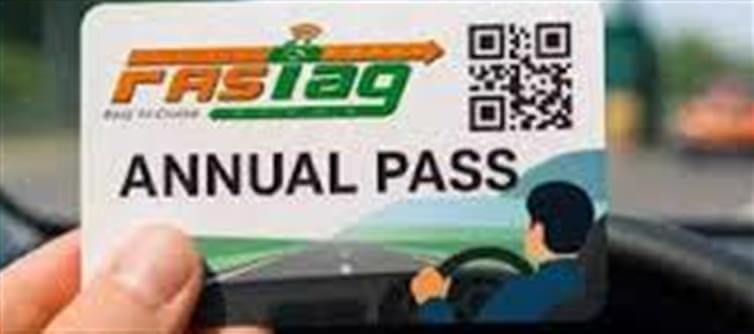
The FASTag Annual Pass, launched by the National Highway Authority of india (NHAI), has made commuting on toll booths across india more convenient for private vehicle owners. Priced at Rs 3,000, it allows 200 trips or one year of travel, whichever comes first. While the pass has been widely welcomed, it’s important to note that it does not cover all expressways and highways, especially those managed by state authorities or private firms. Here’s a comprehensive guide on where the pass works and where it doesn’t.
1. What is the FASTag Annual Pass?
The FASTag Annual Pass is designed to simplify toll payments for private vehicle owners. By purchasing the pass, you can travel across multiple toll plazas under the central government or NHAI jurisdiction without worrying about individual toll charges. The pass is ideal for frequent travelers, offering convenience, time-saving, and predictability in travel expenses.
Key Features:
Price: Rs 3,000
Validity: 200 trips or 1 year from issuance
Eligibility: Private vehicles only
Non-transferable: Cannot be used by other vehicles
2. Where the FASTag Annual Pass is Valid
The Annual Pass works on all highways and expressways managed by NHAI or the central government. If you’re planning a trip on central expressways, your FASTag Annual Pass will work seamlessly, letting you skip long queues at toll plazas.
3. Expressways Where the Annual Pass is NOT Valid
Despite its convenience, the pass cannot be used on several major expressways controlled by state governments or private entities. Travelers must rely on a regular FASTag account for toll payments on these roads.
Here’s a list of expressways and highways where the pass is not valid:
Delhi-Meerut Expressway – A key route connecting the national capital with Meerut, managed by state authorities.
Yamuna Expressway – Popular for trips between delhi and Agra; private management restricts the pass.
Agra-Lucknow Expressway – A vital Uttar Pradesh corridor, excluded from the Annual Pass scheme.
Bundelkhand Expressway – Connecting different UP regions, governed by state authorities.
Purvanchal Expressway – Another major UP expressway where the pass cannot be used.
Mumbai-Pune Expressway – A heavily used maharashtra route with private toll management.
Bandra-Worli sea Link – Iconic mumbai link, excluded due to local authority control.
Samruddhi Mahamarg – Maharashtra’s ambitious expressway, also excluded.
All other state highways and toll roads – Any route under state jurisdiction requires a regular FASTag account.
4. Who Can Apply for the FASTag Annual Pass?
The Annual Pass is strictly for private vehicles. It cannot be issued to:
Commercial vehicles
Vehicles with yellow number plates
Vehicles registered only by chassis number
This ensures that the pass remains focused on private commuters rather than commercial transport.
5. Is the FASTag Annual Pass Transferable?
No. The FASTag Annual Pass is non-transferable. It will only be issued for the vehicle listed in the registration certificate. If you sell your car or switch vehicles, a new pass must be purchased.
6. Understanding the Trip Limit
The pass allows 200 trips, which are counted differently depending on the toll system:
Point-based toll plazas: One-way travel counts as a single trip; a return journey counts as two trips.
Closed or ticketed systems: A full entry-to-exit journey is counted as one trip.
This system ensures fair usage while providing flexibility for frequent travelers.
7. Final Tips for Commuters
Always check the expressway’s authority before relying on the Annual Pass.
Use a regular FASTag account for excluded expressways to avoid penalties.
Keep track of the 200-trip limit to maximize the pass’s utility.
Remember that commercial or rental vehicles are ineligible for the pass.
Bottom Line:
The FASTag Annual Pass is a game-changer for private vehicle owners, providing hassle-free toll payment and convenience on NHAI-managed highways. However, travelers need to be aware of its limitations on certain state or privately managed expressways, such as the Delhi-Meerut Expressway and yamuna Expressway. Proper planning ensures smooth, uninterrupted journeys across India’s road network..jpg)




 click and follow Indiaherald WhatsApp channel
click and follow Indiaherald WhatsApp channel